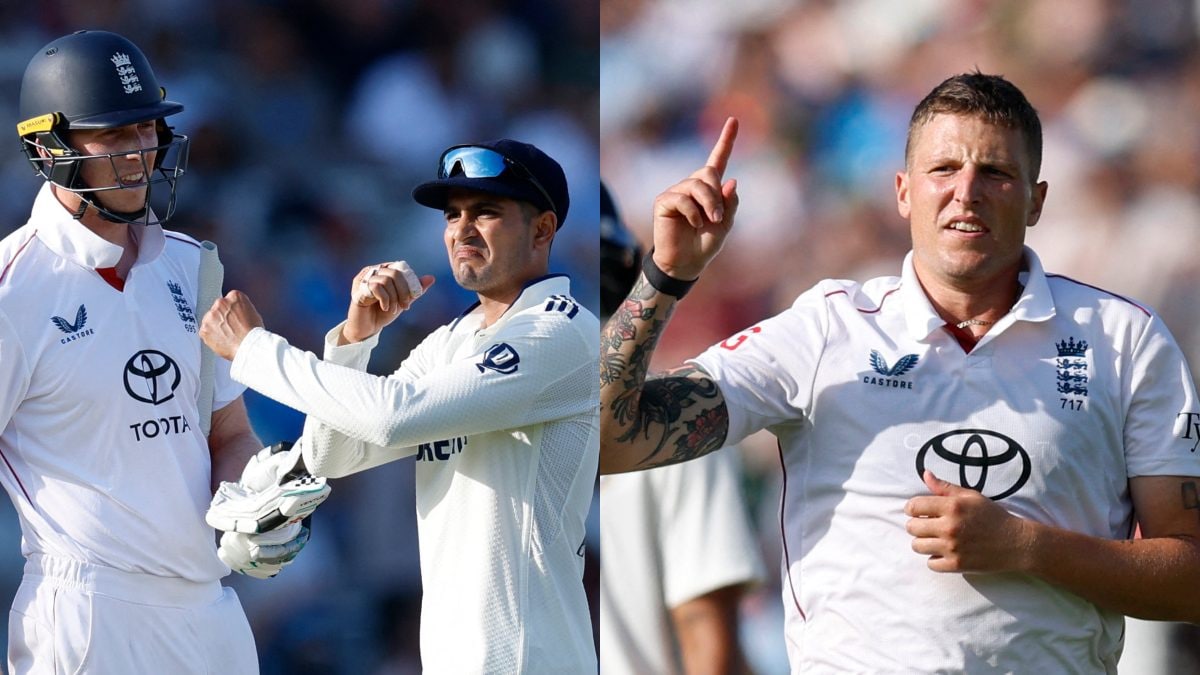

The recent Lord's Test between England and India was more than just a thrilling cricket match; it was a crucible that forged a new level of intensity and unity within the England team. Brydon Carse, the England pacer, revealed that the heated exchange between Shubman Gill and Zak Crawley on Day 3 acted as a catalyst, igniting a fire that propelled the team to a narrow, yet significant, 22-run victory.
The incident occurred during the final over of Day 3. Crawley's delaying tactics, as he repeatedly pulled away from facing Jasprit Bumrah, frustrated the Indian team, particularly captain Shubman Gill. Gill confronted Crawley, with stump microphones picking up heated exchanges. This confrontation, according to Carse, sparked a crucial team meeting that evening, shifting the entire mood and mentality of the England squad.
"We had a conversation on the evening of day three, when the Indian side was getting stuck into our two batters," Carse told ESPNcricinfo. "That shifted the mentality and the mood of our whole group, that we were going to be right up for this and get stuck in".
Harry Brook echoed this sentiment, stating that the team felt it was "11 versus 2" out on the field, emphasizing the newfound unity and willingness to fight for each other. Brook also noted that the public reaction to England's aggressive stance was overwhelmingly positive.
The change in England's approach was evident in their on-field demeanor. Players were more vocal and assertive, creating a charged atmosphere that unsettled the Indian batsmen. While some might view this aggression as unsportsmanlike, Carse defended it, emphasizing the importance of fighting for your teammates. "When you're out on that field, and there's 10 other blokes all fighting your corner, it's pretty cool," Carse said. "And it's what the game needed at that time".
Notably, England's assistant coach, Marcus Trescothick, felt that the spat between Gill and Crawley injected life back into the match, adding a competitive edge. He acknowledged that while things might get heated, both teams were aware of the line that shouldn't be crossed.
However, not everyone believes the confrontation benefited India. Former Indian cricketer Sanjay Manjrekar suggested that the incident negatively impacted Shubman Gill's batting performance in the second innings, where he fell cheaply. Manjrekar noted that Gill appeared tentative and unsettled, a stark contrast to his solid defensive technique in the earlier Tests.
Despite differing opinions on its impact on the Indian team, the Gill-Crawley incident undoubtedly served as a turning point for England. It fostered a sense of collective responsibility and a willingness to stand up for one another, resulting in a more assertive and united team. This shift in attitude proved crucial in securing the victory at Lord's and could potentially shape England's approach for the remainder of the series and beyond. This incident highlights the fine line between aggressive competitiveness and sportsmanship, sparking debate about its place in the modern game.